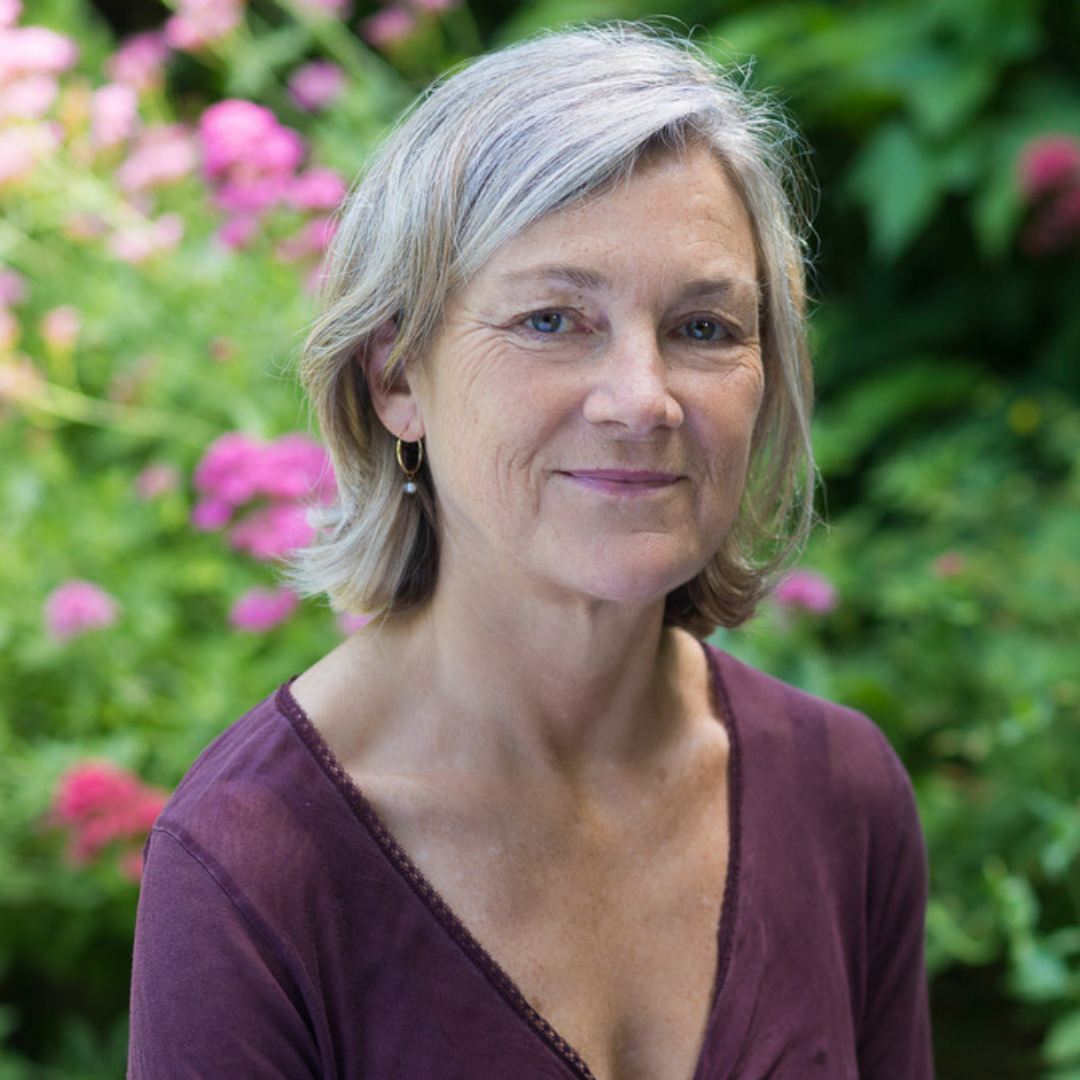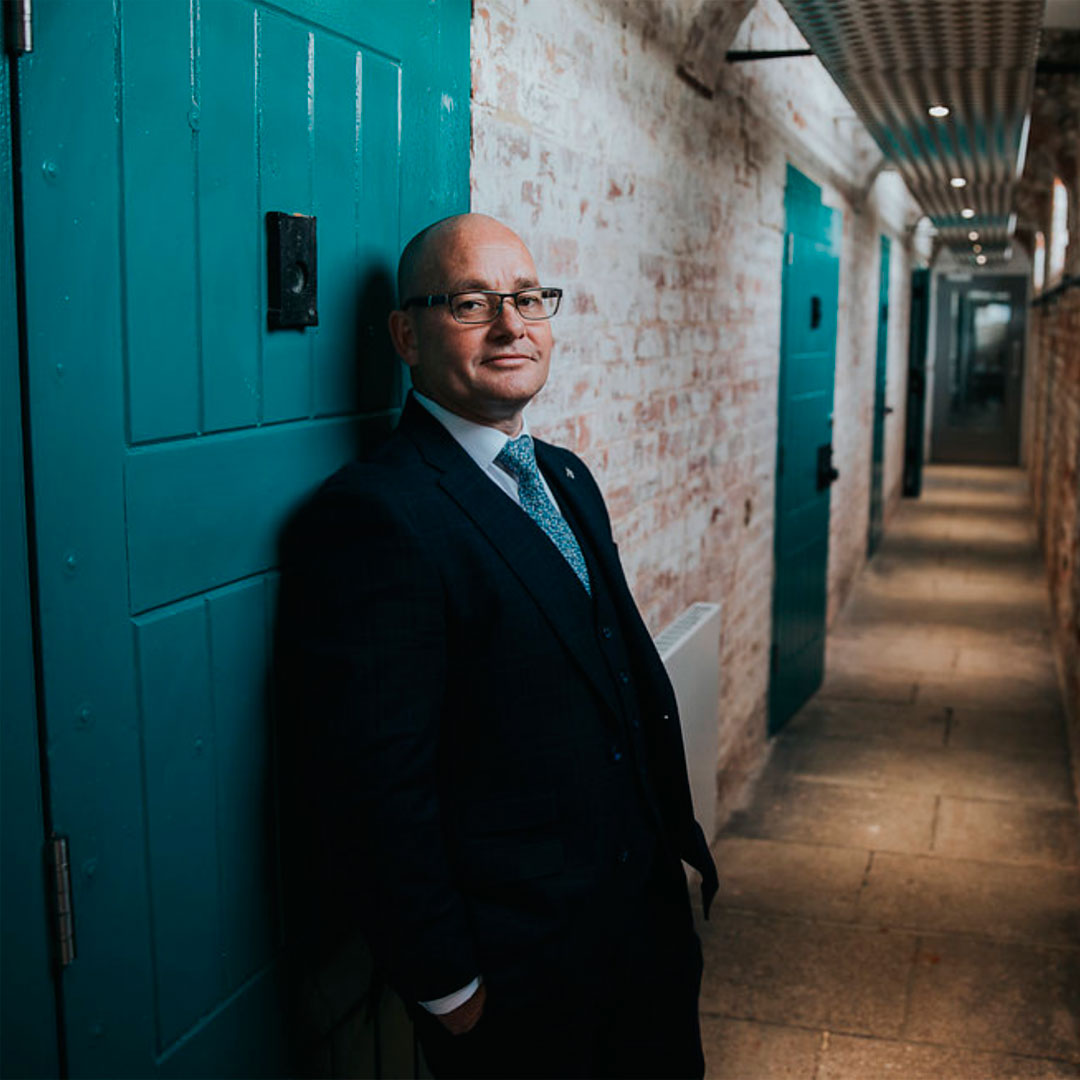Photography by Brian Moody
In 1973 Marian Partington’s younger sister, Lucy, disappeared from a Gloucester bus stop after visiting a friend. Twenty years later, the gruesome discoveries at 25 Cromwell Street revealed that Lucy Partington had been a victim of serial-killers Frederick and Rosemary West. Frederick West committed suicide before the trial in 1995, while Rosemary West was found guilty of ten murders and sentenced to life imprisonment.
As soon as the news came through that Lucy’s body had been found at 25 Cromwell Street, I vowed to try and bring something positive out of this meaningless trauma.
But first I had to face the truth. Lucy had been abducted, gagged, raped, tortured and murdered, before she was beheaded and dismembered. For a year after the finding, her remains were needed as an exhibit for the defence. After this I felt an instinctive need to go to the mortuary in Cardiff to hold and wrap her bones. During that moving ceremony something shifted and I made a step towards peace.
In that same year I also began to go on Chan Buddhist retreats. It was at one of these that I made a vow to try and forgive the Wests. It seemed the most liberating, positive way forward. This was uncharted territory for me, but I have always believed there is something good in everyone.
When I came home from the retreat I had an overwhelming, involuntary, and profoundly physical experience of murderous rage: it went… Whoosh! All the way up from my belly to my skull. I wanted to scream, pull my hair out, claw at the ground. So for me, forgiveness began with murderous rage. Until then I hadn’t thought of myself as a murderous person, but at that moment I was capable of killing. In other words, I was not separate from the Wests.
At the committal trial, when I saw Rosemary West sitting there, it was almost impossible to match her expressionless face with the endless graphic details of sexual depravities and brutality. But then I heard her voice on tape, shouting, swearing and full of rage, and I began to have some insight into her mind. I later discovered she’d been sexually abused by her brother, then abducted from a bus stop and raped aged 17.
Her story seems to be about the impoverishment of a soul that knew no other way to live than through terrible cruelty. A life deprived of truth, beauty or love. I imagine that the deviant ignorance that fed her sadistic, egotistical crimes was rooted in her ruined, crooked childhood. Will she ever know the sacredness of life?
Since then my work has been about connecting with Rosemary West’s humanity and refusing to go down the far easier and more predictable path of demonizing her. I take every opportunity to talk about her as a human being.
I once met another mother whose daughter had been murdered. She gave me a phrase that I now have pinned to my door: “forgiveness means giving up all hope of a better past.” Gradually, I have grown to face, accept and integrate the unresolved pain of the past. I have imagined something of Rosemary West’s suffering, something of Lucy’s suffering. I do not wish Rosemary West more pain.
Working towards forgiveness seems to be the most imaginative way of becoming free and offering freedom. It is only something you can line yourself up for; you can’t make it happen. But I know it’s the only creative way forward, because it allows me to find a positive relationship with my own suffering which can be beneficial to others. In this way I can use my life to transform the cycle of violence. Sometimes I have experienced the sacredness of my own life and the inter-connectedness of all our lives. In this place forgiveness is spontaneous.
Some people have asked whether I feel I’m betraying Lucy by doing this and I say, “No, absolutely the opposite: I feel I’m honouring Lucy by lining myself up for forgiveness.”




